By: Arthur Magero Abonyo MA,
Conflict transformation and peacebuilding are processes that are continuous. A careful analytical consideration is required in elaborating the structured inquiry into the potential causes and direction of conflict which negatively sways the livelihood services that one desires to meet. According to Devine (2016) in a study on the persistence of conflict, points out that, from the perspective of responsibility for the existence of conflict, the causes of conflict and the explanation for its persistence are not one and the same thing. For the past 5 years, Shalom-SCCRR through its peacebuilding experts/practitioners has consistently been on the forefront ensuring that the 2022 general elections in Kenya were peaceful. Referring to the Shalom-SCCRR organization and their work in the run-up and aftermath of the 2017 Kenya general election, Fergal Keane, the renowned BBC Africa correspondent, said that, Kenya needs them in its slums and beleaguered western villages,… what they do here matters to all of Africa…
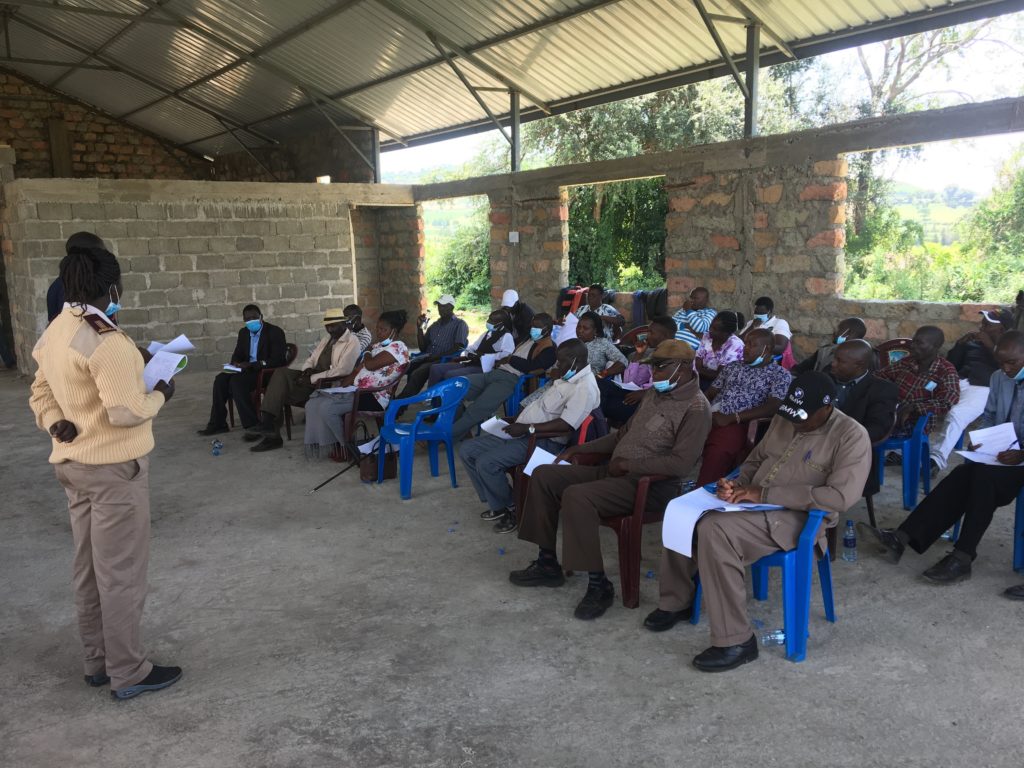
Shalom-SCCRR’s Intervention measures towards peaceful elections
The intervention by Shalom-SCCRR along this border dates back to 2017. Prior to this, the borderline had been grappling with severe effects of politically instigated violence especially during election time which were often accompanied by far too many human deaths, injuries, maiming, families being left homeless, human displacement and economic mainstay of the people destroyed as massive sugarcane plantations went up in flames.
In May 2018, Shalom-SCCRR involved the affected communities along the border of Kisumu-Nandi Counties in a conflict analysis with a view of establishing the root causes of election related violence and other conflicts that negatively affects the communities.
This journey of the Shalom-SCCRR’s interventions along the volatile Kisumu-Nandi borderline has been heralded by analytical methodology in conflict transformation and peacebuilding without recourse to manifest violent behaviours. Furthermore, conflict transformation and peacebuilding trainings, capacity building and prevention of election related violence forums played a major role in prevention of violence along where the volatile Kisumu-Nandi interfaces.
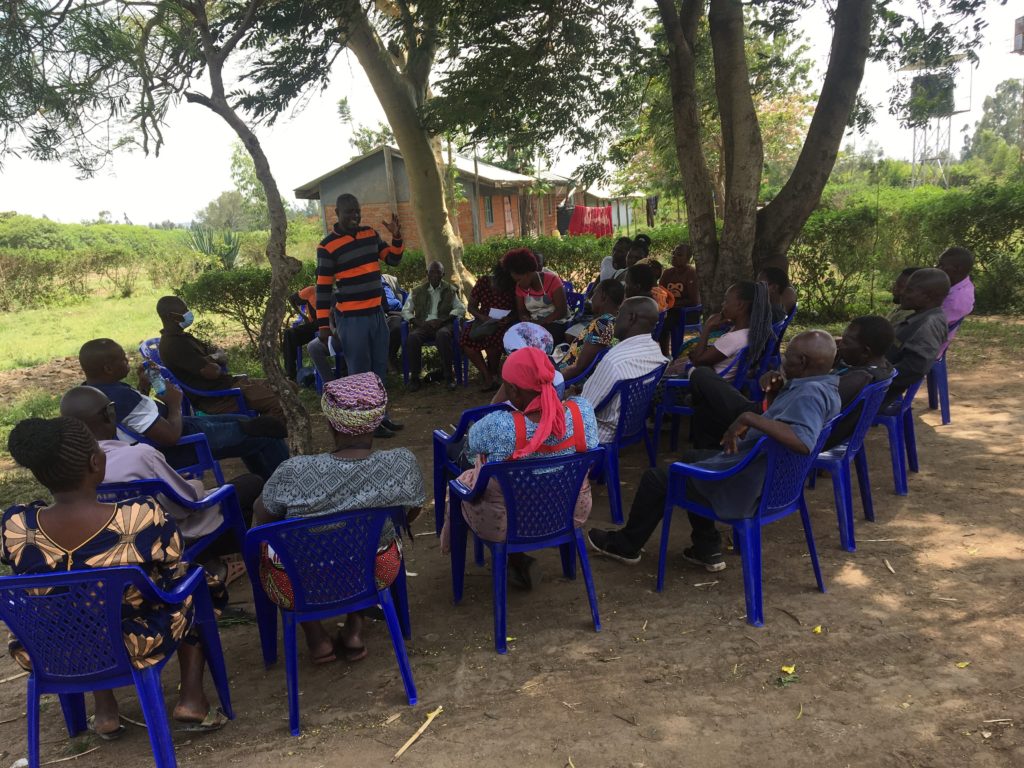
Shalom-SCCRR through its qualified personnel has ensured that the infrastructure that support peace along the borderline are improved and strengthened through its collaboration with the local government administration and influential leaders at the community level.
The joint interethnic committee of ten (10) members established by Shalom-SCCRR, has effectively continued working in collaboration with local government administrators (Chiefs, Assistant County Commissioners, and Deputy County Commissioners). This committee has ensured that conflict monitoring and skillful analysis of the conflict situation remained the foundation for conflict transformation and as a methodology that has seen the two communities achieve tolerance, inclusivity and peaceful electioneering period along Kisumu-Nandi borderline.
Undeniably, the progressive joint activities that are conducted every two months by the joint community leaders have contributed much to the achievement in combating impunity and creating conditions that discourage violence while promoting tolerance among the two ethnic communities at the border, observes Benedict, a community animator Muhoroni Sub-county, as he thanked Shalom-SCCRR efforts in strengthening and supporting peacebuilding structures along the Kisumu-Nandi borderline.
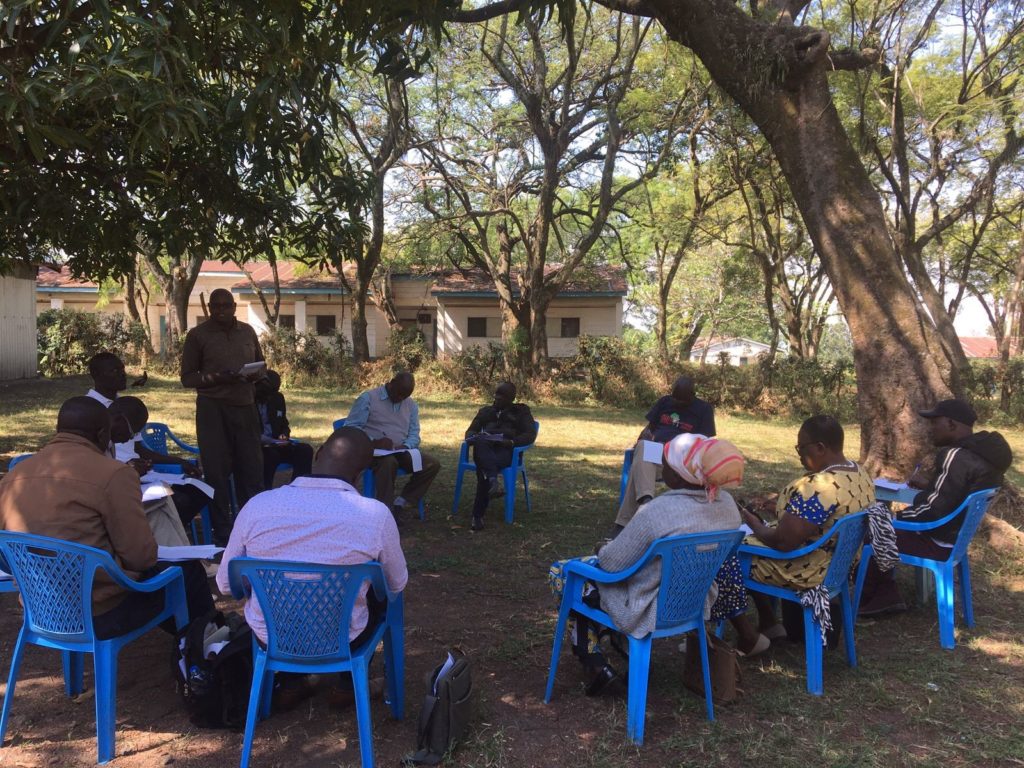
Shalom-SCCRR interventions has required intensive presence by its personnel and resources in empowering the local people to be the architect of their own interdependent future. Involvement of the local community leaders, opinion shapers and community stakeholders of all categories has successfully contributed to attitude and behavior transformation in prevention of the election related violence along the Kisumu-Nandi border.
The success of Shalom-SCCRR’s Interventions toward peaceful election
The efforts made by Shalom have greatly improved the capacity of the communities in identifying and recording underlying causes of conflict issues at the community level. It has further informed the local conflict transformation interventions and policy direction for advocacy along the borderline. Molly Omwa a Shalom-SCCRR trained Lead Community Facilitator observed that, our continuous monitoring and recording of conflict incidents and coming up with the relevant intervention strategies; and by involving the local community structure, helped in enhancing community outreach and local ownership of the peace process which has helped in de-escalation of violence and tension related to election along this borderline.
By and large, the knowledge and skills acquired by the Shalom-SCCRR trained community members has abetted in rebuilding the relationship between the Luo and the Nandi ethnic communities living along the borderline. This is evident by the fact that the two politically heterogeneous Luo and Nandi ethnic communities, have remained calm and united throughout the entire period of political campaigns and even after the declaration of the presidential results which have since been contested. Despite the two ethnic communities dominantly subscribing to divergent political ideologies and formations, they have remained united as they jointly continue managing their socio-economic activities and political issues together. This is a great honor to the Shalom-SCCRR trained members of the community for taking ownership of their community in preventing election related violence. The peace has ensured that the market places, schools and health facilities that were literally inoperable at a time like this in the past election years, are currently fully functional due to the peaceful coexistence experienced along the borderline.
Truly these institutions and facilities have benefited from the Shalom-SCCRR interventions as market places have expanded to accommodate both communities, schools have reopened and children from both ethnic communities are enjoying peaceful learning environment.
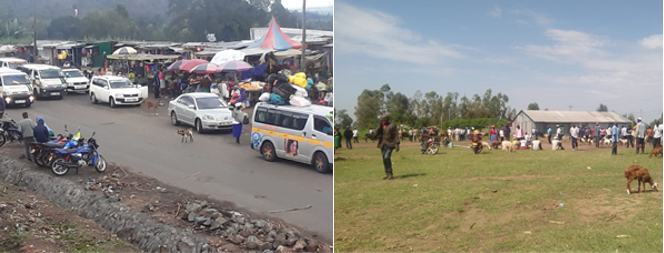
Despite the two ethnic communities having supported different political coalition parties in the 2022 political contest, they have put aside their political divide after the just completed general election as they remain focused at building a peaceful society.
While attributing the success of prevention of election related violence along the Kisumu-Nandi border to Shalom-SCCRR conflict transformation and peacebuilding interventions, in collaboration with the local government administration, the Shalom-SCCRR trained Chief Everlyne Karan of Chemase Location observed that, It is the first time in history of this volatile borderline to enjoy this kind of serenity before, during and after the general election. Shalom-SCCRR has indeed improved our skills and knowledge in conflict transformation and peacebuilding around election time as there has been continued coordinated peacebuilding activities among the inter-ethnic communities along the border in averting any form of election related violence.
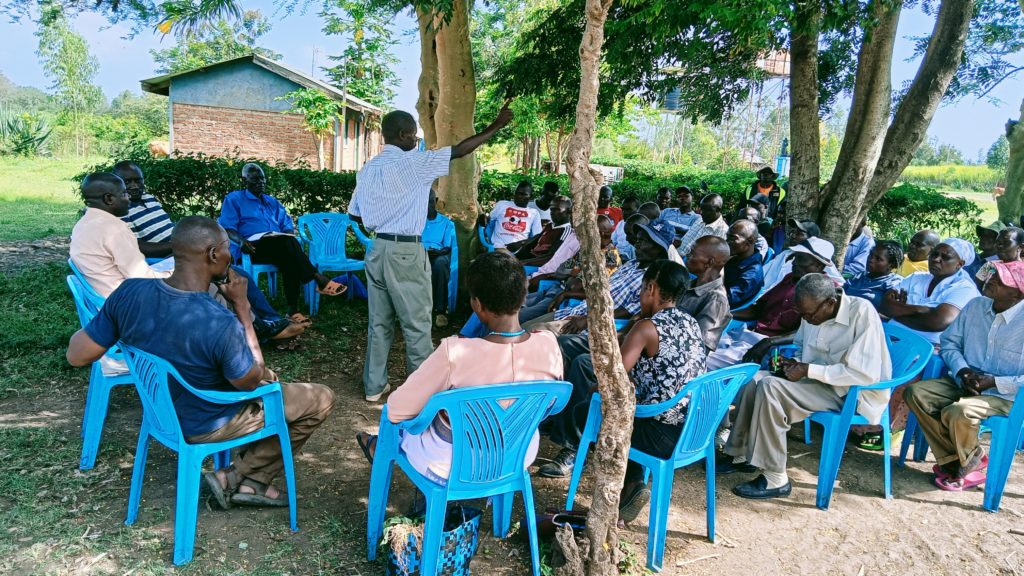
Indeed their efforts in prevention and mitigation of election related violence has been demonstrated by the capacity of the joint community leaders to coordinate and mobilize community members from both sides of the ethnic divide. This has helped the two communities to embrace non-violent conflict transformation measures as a means of engaging with each other especially when faced with issues that can lead to an outbreak of violence along the borderline.
The frequent joint peace meetings involving different stakeholders has established a structure for inter-ethnic cooperation during the election period along the borderline. This has been instrumental in preventing some politicians from taking advantage of the land issue to divide the two ethnic communities as a means to ascent to power.
The empowerment of the two ethnic communities along the borderline on conflict transformation and peacebuilding has given them the capacities to prevent any form of election violence as they have the aptitude to address the underlying conflict drivers along the borderline. This is attested in their involvement in coordinating and mobilizing different categories of their community members who participate in peacebuilding forums aimed at preventing and diffusing election related violence as well as other conflicts along the Kisumu-Nandi borderline.
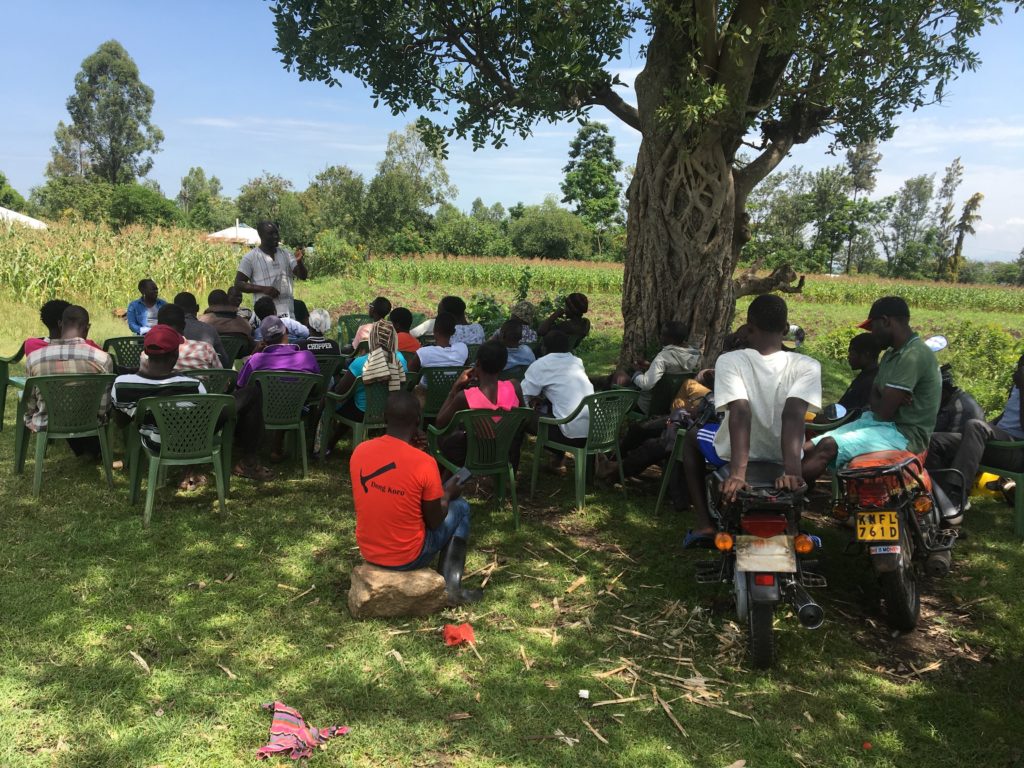
Our happiness has automatically increased as our bodaboda business has been thriving during this electioneering period, as a Shalom-SCCRR trained Community Facilitator I have constantly been involved in awareness creation on prevention of election violence in different forums that involved bodaboda riders, and different youth groups which were successful in harnessing the peace we are experiencing after the concluded general elections, remarks Vincent Bett a Shalom-SCCRR trained Community Facilitator from Tinderet Sub-county.
Author: Arthur Magero Abonyo MA, Project Officer; Kisumu- Nandi & Nakuru Projects
Relevant Links
https://shalomconflictcenter.org/bbc-and-shalom-sccrr-confer/
http://erepository.uonbi.ac.ke/handle/11295/97476
https://shalomconflictcenter.org/briefing-paper-no-7-an-analysis-of-luo-nandi-conflict/
https://shalomconflictcenter.org/2021-shalom-sccrr-results-achievements/
https://shalomconflictcenter.org/2009-2021-shalom-sccrr-results-and-achievements/
https://shalomconflictcenter.org/kenya-elections-2017-response-to-shaloms-interventions/
CONNECT WITH SHALOM-SCCRR

